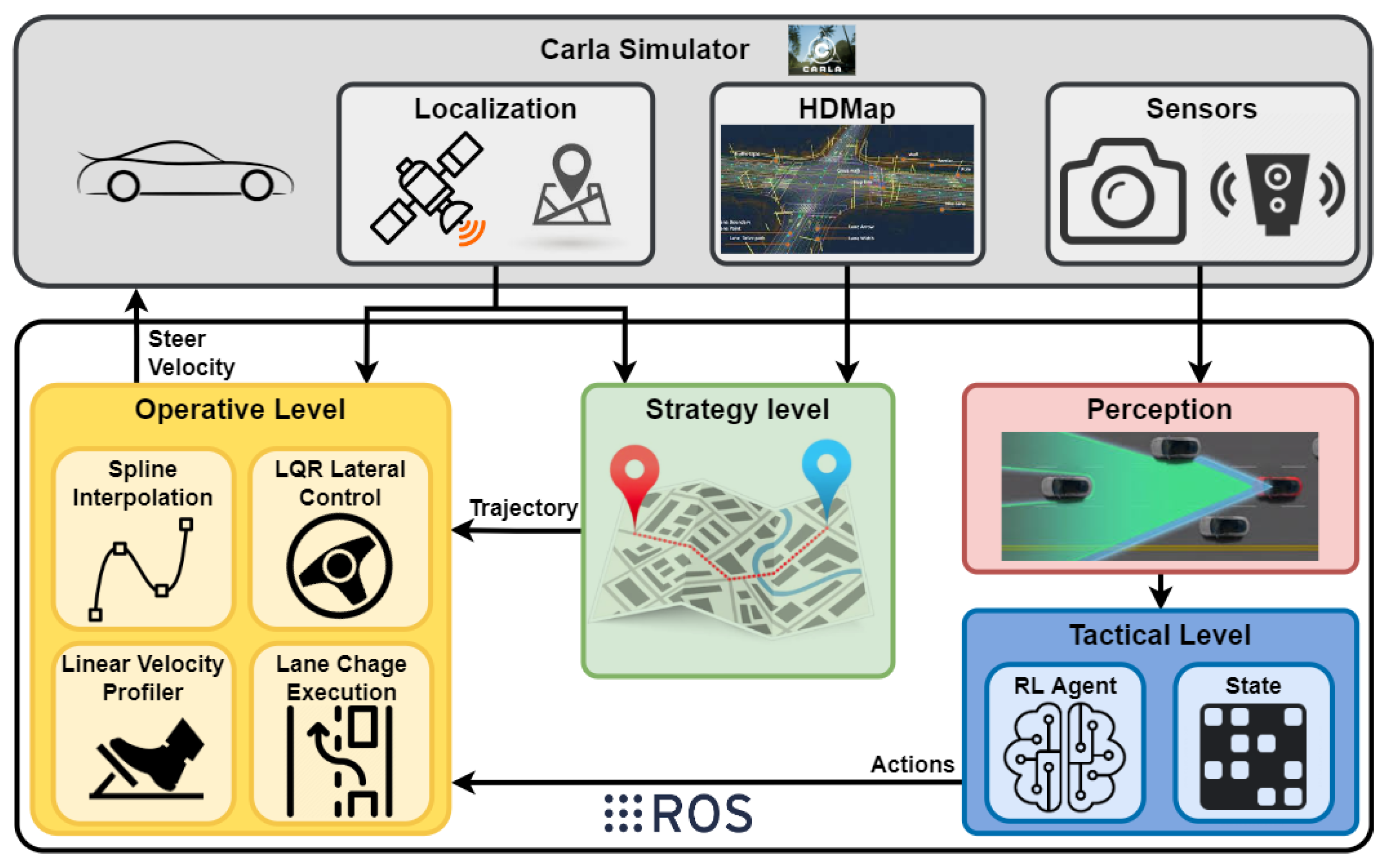Carla Hayden: A Trailblazing Leader In American Libraries
In the vast and intricate world of knowledge, where stories are preserved and information is made accessible, certain individuals emerge as beacons of progress and unwavering dedication. One such luminary is Carla Hayden, a name synonymous with innovation, advocacy, and breaking barriers within the realm of libraries. Her journey from a passionate librarian in Chicago to the highest echelons of the Library of Congress is a testament to her profound impact on how we perceive and interact with our nation's historical and intellectual treasures.
This article delves into the remarkable career of Carla Hayden, exploring her groundbreaking achievements, her steadfast commitment to public access, and the challenges she faced, including her unexpected dismissal from a pivotal role. We will uncover how her vision reshaped the landscape of American libraries and cemented her legacy as a true pioneer.
Table of Contents
- The Journey of Carla Hayden: A Biographical Sketch
- Personal Data: Carla Hayden
- Breaking Barriers: The 14th Librarian of Congress
- Championing Access and Defending Rights
- The Abrupt Dismissal and Its Aftermath
- Beyond the Library of Congress: A New Chapter
- The Enduring Legacy of Carla Hayden
- Carla Hayden's Vision for the Future of Libraries
- Frequently Asked Questions About Carla Hayden
The Journey of Carla Hayden: A Biographical Sketch
The life and career of Carla Hayden are deeply intertwined with her unwavering commitment to education, public service, and the fundamental right to information access. Born on August 10, 1952, her path to becoming a celebrated figure in American librarianship was marked by academic rigor and hands-on experience, laying the groundwork for her future groundbreaking roles.
- Joann Fabric In Store
- Ronald Reagan Building And International Trade Center
- Kanye Heil Hitler Song X
- News 12 Brooklyn
- Sports Logos
Early Life and Education
Carla Diane Hayden's intellectual journey began with a strong foundation in academia. She pursued her higher education with a clear focus on the field that would define her career. Her dedication culminated in earning a Ph.D. in Library Science from the prestigious University of Chicago. This rigorous academic background provided her with a deep theoretical understanding of library systems, information science, and the critical role libraries play in society. It equipped her with the expertise necessary to innovate and lead, preparing her for the complex challenges and opportunities that lay ahead in a rapidly evolving information landscape.
Formative Years at the Chicago Public Library
Before ascending to national prominence, Carla Hayden began her career at the Chicago Public Library. This period was crucial in shaping her practical approach to librarianship and her understanding of community needs. Working within a large urban library system, she gained invaluable experience in serving diverse populations, managing resources, and implementing programs that directly benefited the public. It was here that she honed her skills not just as an administrator, but as an advocate for library users, recognizing the library as a vital community hub. Her work in Chicago laid the foundation for her future endeavors, demonstrating her ability to lead and innovate within a public service context, always with an eye towards expanding access and utility for all.
Personal Data: Carla Hayden
Here's a quick overview of key personal and professional data for Carla Hayden:
- Vikings Qbs
- Grand Sirenis Riviera Maya Resort Spa
- Allianz Amphitheater At Riverfront
- Tiempo En Houston
- Golden State Warriors Vs Timberwolves Match Player Stats
| Category | Detail |
|---|---|
| Full Name | Carla Diane Hayden |
| Date of Birth | August 10, 1952 |
| Place of Birth | Tallahassee, Florida, U.S. |
| Alma Mater | University of Chicago (Ph.D. in Library Science) |
| Notable Positions |
|
| Librarian of Congress Term | September 14, 2016 – May 2017 (Dismissed) |
| Key Achievements |
|
Breaking Barriers: The 14th Librarian of Congress
The appointment of Carla Hayden as the 14th Librarian of Congress marked a pivotal moment in American history. Her nomination and subsequent swearing-in shattered long-standing barriers, signaling a new era for the nation's most prestigious library institution.
A Historic Appointment
On February 24, 2016, President Barack Obama nominated Carla Hayden to the position of the 14th Librarian of Congress. This nomination was historic for multiple reasons. She was not only the first woman but also the first African American to be nominated to lead the national library since its establishment in 1802. Her nomination was widely celebrated as a step forward for diversity and representation in a role that holds immense cultural and intellectual significance. On September 14, 2016, Hayden was sworn in, officially taking the helm of an institution that serves as the primary research arm of the U.S. Congress and the largest library in the world. Her appointment was a powerful symbol of progress, demonstrating that leadership roles at the highest levels of government could be held by individuals from diverse backgrounds, bringing fresh perspectives and experiences to the stewardship of American history and knowledge.
Vision for the Library of Congress
Upon her appointment, Carla Hayden articulated a clear and compelling vision for the Library of Congress. She understood that the institution, with its vast and unparalleled collections, represented a "treasure box of American history." Her primary goal was to find ways to open this treasure box to a wider audience, making its immense resources more accessible to the general public, not just scholars or researchers. She recognized that her skills and experience could bridge the gap between the library's immense holdings and the everyday lives of Americans. This vision encompassed leveraging digital technologies, enhancing public programming, and fostering a more inclusive environment, ensuring that the library truly served as a national resource for all citizens. Her focus was on democratizing access to knowledge, a principle she had championed throughout her career.
Championing Access and Defending Rights
Throughout her career, Carla Hayden has consistently stood as a staunch advocate for public access to information and the protection of library users' rights. This commitment was evident long before her tenure at the Library of Congress, particularly during her time as the director of the Enoch Pratt Free Library in Baltimore. During a period of heightened national security concerns, she was notably vocal in defending library users' privacy and resisting government attempts to access patron records without due process. This principled stance earned her widespread respect within the library community and among civil liberties advocates.
Her dedication to accessibility extended beyond privacy. She believed that libraries should be vibrant, welcoming spaces for everyone, regardless of their background or socioeconomic status. This philosophy informed her efforts to expand digital resources, enhance literacy programs, and ensure that library services met the evolving needs of diverse communities. At the Library of Congress, this meant not just preserving the nation's heritage but actively making it available and understandable to a broader public. She sought to demystify the institution, transforming it from a perceived elite research facility into a dynamic hub for national learning and engagement. Her work underscored the idea that information is a public good, and libraries are its essential guardians and facilitators.
The Abrupt Dismissal and Its Aftermath
Despite her historic appointment and clear vision, Carla Hayden's tenure as the Librarian of Congress was unexpectedly cut short. In May 2017, President Donald Trump fired her, a decision that sent shockwaves through the library community and drew a furious response from Democrats. The dismissal was abrupt and, by her own account, blindsiding.
Speaking later about the experience, Carla Hayden described being caught off guard by the decision. Geoff Bennett, a prominent journalist, spoke with her about being blindsided, highlighting the suddenness of her removal from such a high-profile and historically non-partisan role. Her firing was met with strong condemnation from various political figures and professional organizations who viewed it as an unprecedented and unwarranted political intervention into an institution traditionally led by scholarly experts rather than political appointees subject to such dismissals. The swiftness and nature of her departure left many questioning the motivations behind the decision and its potential implications for the independence of the Library of Congress. Her wry comment, "I’m a little nervous, because I haven’t been out much," declared former Librarian of Congress Carla Hayden, wryly referring to her abrupt dismissal earlier that year, encapsulated the unexpected turn of events in her distinguished career.
Beyond the Library of Congress: A New Chapter
Even after her abrupt dismissal from the Library of Congress, Carla Hayden's dedication to public service and the arts remained undimmed. Her vast experience and profound insights into the world of information and culture made her a sought-after voice and leader. Following her departure from the national library, she joined one of the country's foremost philanthropic supporters of the arts, embarking on a new chapter where she could continue to champion cultural institutions and public engagement.
This transition allowed her to apply her expertise in a different, yet equally impactful, capacity. She continued to speak publicly, sharing her perspectives on the future of libraries and the critical role they play in society. For instance, Carla Hayden, former Librarian of Congress, spoke on her dismissal and the future of libraries at a Philadelphia event, demonstrating her resilience and continued commitment to the field. These engagements allowed her to reflect on her experiences, including the challenges she faced, and to advocate for the enduring value of libraries as democratic institutions. Her continued presence in public discourse underscored her unwavering belief in the power of knowledge and access, proving that her influence extended far beyond any single position.
The Enduring Legacy of Carla Hayden
The impact of Carla Hayden on the landscape of American libraries is profound and multifaceted, solidifying her place as a true pioneer. Her legacy is defined not just by the historic "firsts" she achieved, but by the principles she championed and the vision she brought to the institutions she led. As the first woman and the first African American to serve as the head of the Library of Congress, she broke significant barriers, paving the way for greater diversity and representation in leadership roles within the cultural and governmental sectors.
Beyond her symbolic importance, Hayden's practical contributions were substantial. Her steadfast defense of library users’ rights, particularly concerning privacy, underscored her commitment to democratic values and intellectual freedom. She consistently advocated for making the vast resources of national libraries more accessible to the general public, moving beyond the traditional image of libraries as exclusive scholarly domains. Her focus on "opening the treasure box of American history to a wider audience" demonstrated a forward-thinking approach to public engagement and education. Her career exemplifies the transformative power of dedicated leadership in ensuring that libraries remain vital, relevant, and inclusive institutions in an ever-changing world. Her influence continues to inspire new generations of librarians and advocates for information access.
Carla Hayden's Vision for the Future of Libraries
Throughout her distinguished career, and particularly in her post-Librarian of Congress engagements, Carla Hayden has consistently articulated a compelling vision for the future of libraries. She understands that libraries are not static repositories of books but dynamic community hubs that must evolve to meet contemporary needs. Her vision centers on several key pillars:
- Digital Transformation: Hayden has been a strong proponent of leveraging technology to expand access to information. She believes in digitizing collections, providing robust online resources, and ensuring that digital literacy is a core service offered by libraries. This allows libraries to reach beyond their physical walls and serve a global audience.
- Community Engagement: She sees libraries as essential civic spaces that foster community building, dialogue, and lifelong learning. Her vision emphasizes libraries as places where people can connect, share ideas, and access resources that improve their lives, from job search assistance to health information.
- Defenders of Democracy: Hayden views libraries as critical institutions for upholding democratic principles, particularly intellectual freedom and the right to information. She has consistently defended libraries' roles in providing diverse viewpoints and resisting censorship, ensuring that citizens have access to the information needed to make informed decisions.
- Inclusivity and Equity: A core tenet of her vision is that libraries must be welcoming and accessible to everyone, regardless of their background, age, or ability. This includes providing culturally relevant programming, accessible facilities, and services tailored to underserved populations.
- Adaptability and Resilience: Hayden recognizes that libraries must be agile and responsive to societal changes. Her vision encourages libraries to innovate, experiment with new services, and adapt their offerings to remain relevant and indispensable in a rapidly changing world.
Her insights continue to shape discussions about how libraries can best serve their communities and nation in the years to come, ensuring they remain vital cornerstones of education and democracy.
Frequently Asked Questions About Carla Hayden
Here are some common questions about Carla Hayden and her remarkable career:
- Who is Carla Hayden?
Carla Diane Hayden is an American librarian who served as the 14th Librarian of Congress. She is widely recognized for her trailblazing career, including being the first woman and the first African American to hold this prestigious position.
- What was Carla Hayden's most significant achievement as Librarian of Congress?
Beyond her historic appointment, Carla Hayden's significant achievement was her focus on expanding public access to the Library of Congress's vast collections. She aimed to "open the treasure box of American history to a wider audience," making the institution more accessible and relevant to all Americans through digitization and public programming.
- Why was Carla Hayden's appointment historic?
Her appointment was historic because she was both the first African American and the first woman to lead the national library since its founding in 1802. This broke a long-standing barrier in a prominent federal cultural institution.
- Was Carla Hayden fired from her position?
Yes, Carla Hayden was fired by President Donald Trump in May 2017. Her dismissal was abrupt and drew significant criticism, particularly from Democrats, as the Librarian of Congress position is traditionally non-partisan and held for a long term.
- What is Carla Hayden known for besides being Librarian of Congress?
Before her role at the Library of Congress, Hayden was known for her leadership as the director of the Enoch Pratt Free Library in Baltimore. She gained national recognition for defending library users’ privacy rights, especially during debates surrounding government surveillance, and for her commitment to community-focused library services.
Conclusion
The journey of Carla Hayden stands as a powerful narrative of dedication, resilience, and groundbreaking leadership in the world of libraries. From her formative years at the Chicago Public Library to her historic appointment as the 14th Librarian of Congress, she consistently championed the principles of access, inclusivity, and the vital role of libraries in a democratic society. Her "firsts" as both the first woman and the first African American to lead the national library are indelible marks of progress, inspiring countless individuals.
Despite the abrupt and unexpected end to her tenure at the Library of Congress, Carla Hayden's influence continues to resonate. Her unwavering commitment to opening the "treasure box of American history" to a wider audience and her steadfast defense of library users' rights have cemented her legacy as a visionary leader. She reminds us that libraries are not just buildings filled with books, but dynamic, essential institutions that empower communities and preserve the very fabric of our shared knowledge. Her story is a testament to the enduring power of public service and the profound impact one individual can have on the intellectual life of a nation.
What are your thoughts on Carla Hayden's legacy and the future of libraries? Share your insights in the comments below, or explore other articles on our site about influential figures in American history and culture.



Detail Author:
- Name : Mr. Ignatius Toy
- Username : labadie.taurean
- Email : francesco.bradtke@yahoo.com
- Birthdate : 2003-04-20
- Address : 330 Esperanza Neck Apt. 568 East Bianka, AR 21196
- Phone : 1-757-939-9779
- Company : Heaney, Altenwerth and Dietrich
- Job : Dentist
- Bio : Et enim unde vel qui at. Inventore eaque velit repellendus fugiat. Voluptatem explicabo enim eos laborum corrupti. Sit omnis explicabo velit.
Socials
instagram:
- url : https://instagram.com/daxquitzon
- username : daxquitzon
- bio : Et et iusto nemo. Ratione sed nobis et aliquid. Facere enim dolores illum laborum quia delectus.
- followers : 4032
- following : 174
tiktok:
- url : https://tiktok.com/@dax_xx
- username : dax_xx
- bio : Maxime nihil quia nobis exercitationem doloribus accusantium et.
- followers : 3992
- following : 1689